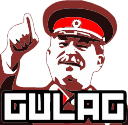It seems to me that conservatism is just fascism with a friendlier face or a type of proto-fascism.
Conservatism is a political marriage of fascists who were never denazified with religious fundamentalists, imperialists/neocons, some of the lumpenproletariat, petty bourgeois, and the actual bourgeois
They are usually all on board with fascism though, so maybe my characterization is flawed
I think it's worth making the distinction. They appeal to different people with different rhetoric that needs to be combated different ways. The divisions within the conservative blob help understand the actions of the whole.
People actively trying to kill minorities / start wars / impose religious law should all be fed into a woodchipper, of course. But it's not like fascist is a synonym with "should be fed into a woodchipper," it's a subset.
But it's not like fascist is a synonym with "should be fed into a woodchipper,"
Yeah, for example, I think half of y'all should be put into a woodchipper, but you're not fascists!
(JK, if that wasn't clear)
(OR WAS I JKing???
 )
)
One way to define fascism is that it's capitalism's self-defense mechanism against the workers organizing, and through this lens you can see conservatism as that self-defense operating "normally" and fascism as it in "crisis mode".
No liberalism is fascism with a friendlier face. Conservatism is just a kind of liberalism that yearns to return to an earlier time.
Look the the words of William F Buckley: To stand athwart history saying stop
i would say its more anti-communist than fascist, but the political and historical beliefs and analysis of conservatives are almost always nearly identical to that of Literal Nazis. ask the average white american boy what they think about ww2 or muslims or trans people and you will get the same answers as a Literal Nazi would give. recently had a conversation with a fellow westoid, and apparently the 'woke media' is 'racist against white people' because lady gaga is going to be in fortnite or something? and like, you can't get some certain kind of film award without having at least one POC actor? incoherent, purely vibes based analysis, terminal treatbrain.
Yeah, more or less. There are differences sometimes, but they don't matter.
It depends on how you look at it, but the ultranationalism, fervent reinforcement of hierarchical domination, attacks on innocent citizens within marginalized groups, corporate pandering, and just overall awfulness can make it seem so. It's just the difference between whether the mask is on or off at this point.
The term fascism has been successfully revised over the years to mean “totalitarian regime that promotes violence and genocide against ethnic minorities” and a “merger of corporations and government”. Both definitions completely missed the mark that these traits were downstream to the historical role of fascism in its relation to capitalism.
Copy and pasting from my comment in another thread:
Fascism is fundamentally characterized by 1) mass privatization and 2) vicious anti-communism. These two characteristics can be found in every fascist regime that has existed throughout history.
The fascist counter-revolution first saw its success in 1920 Italy when the post-WWI nationalized economy gave rise to a strong socialist movement that nearly overthrew the bourgeois government.
WWI ended laissez faire capitalism when it found itself unable to ramp up war production and suffered from inefficient output, and this was a disadvantaged position during inter-imperialist warfare. Instead, state run capitalism became the norm as the imperialist powers were dragged into a protracted Great War during which vast resources and war production could only possibly be organized efficiently with state intervention. Such dramatic changes shifted the leverage to the working class, whom the ruling class became dependent on to win the war. The consequence of this was the explosion of labor and socialist movements throughout Europe, and culminated in the Bolshevik Revolution in Russia that subsequently ended WWI.
As they found themselves unable to resist against the tidal wave of workers movement, inspired by the success of the Bolshevik Revolution in Europe, the liberal capitalist class turned to fascism with the hopes that such extreme brutality could crush the seemingly unstoppable socialist movements. They succeeded, first in Italy in 1922, and then subsequently in Germany in the early 1930s.
One of the first signs of a fascist regime was the mass privatization of the previously nationalized industries:
Benito Mussolini became Prime Minister in October 1922. Nazis rose to power in 1933 in Germany. Mussolini convened a meeting of his cabinet and immediately decided to privatize all the public enterprises. On December 3, 1922, they passed a law where they promised to reduce the size and function of the government, reform tax laws and also reduce spending. This was followed by mass privatization. He privatized the post office, railroads, telephone companies, and even the state life insurance companies. Afterward, the two firms that had lobbied the hardest: Assicurazioni Generali (AG) and Adriatica di Sicurtà (AS), became a de-facto oligopoly. They became for-profit enterprises. The premiums increased, and poor people had their coverage removed.
After the trains were privatized, the services became slower and more irregular, contrary to the popular myth.
In January 1923, Mussolini eliminated rent-control laws. His reasoning ought to be familiar since that is the same reasoning used in many contemporary editorials against rent control laws. He claimed rent control laws prevent landlords from building new housing. When tenants protested, he eliminated tenants' unions. As a result, rent prices increased wildly in Rome, and many families became homeless. Some went to live in caves.
Once more, these policies allowed landlords to increase their profit and holdings while they severely hurt the poor.
To remove "government waste," Mussolini removed the federal government from remote areas in Italy. This meant that rural farmers, peasants, and workers no longer had the protection of the federal government against abuse from agribusiness. Instead, they were entirely under the mercy of big businesses.
The austere economic policies in fascist Italy were studied closely by the British marginalists, who were the precursors to the neoclassical economists that eventually found the Chicago school and brought neoliberalism to the forefront of economics.
As such, there is a direct connection where fascism and their austerity economics directly contributed to the development of neoliberalism. Combined with a vicious anti-labor and anti-communist thrust, the models of fascism being replicated in Indonesia in the 1960s, Chile in the 1970s, Russia in the 1990s (Russia being a special case because they didn’t go all the way, as Putin re-nationalized a lot of the key industries since in the early 2000s) and Ukraine in the 2010s, under the guise of neoliberalism, during which hundreds of thousands if not millions of communists and left wing activists were brutally murdered, accompanied by mass privatization of public utilities and industries.
Within Europe itself, mass privatization began in the UK as early as the 1960s, and began to become part of the European center left/social democratic platforms in the 1970s. Interestingly, most historical account of privatization in Europe conveniently left out the earliest forms of mass privatization that took place under the fascist regimes in Italy and Germany in the 1920s and 1930s.
In other words, neoliberalism is simply fascism rebranded. By all accounts, the neoliberal model of the United States is as close as you can get to fascism - what is missing here is that violence against communists, labor activists, minorities aren’t becoming prevalent yet due to the relatively high living standards of the US being sustained by its foreign imperialist policies.
But don’t let that fool you, just like in the 1920s, they really can turn to fascism in an instant when the situation becomes dire enough to call for it. It took no effort at all in convincing an entire class of liberals in Italy and Germany to support Mussolini and Hitler.
I would make the case that the terms, in the western sense, are interchangeable. Westerners love fascism, it's in their blood.
Its easily a proto-fascism since when the conditions are right for the bourgeois they'll throw everything in with the fascists, just like their counterpart the libs, and when its not they'll cling to their illusory thin strands of 'muh traditions'' this and that and pretend they're not when really they are. The US served as a lot of inspiration for the nazis' genocidal campaigns and probably structuring for their arms industry leading up to ww2 as well.
The further ideas of what the past was like are removed from what the past was actually like the more fascist it is.
it depends, some religious kinds of conservative want things that are inconvenient for capital, or even for capital to be subservient to a religious authority---these people aren't really fascist, but it doesn't matter much as they're liable to work with fascists on most things.












